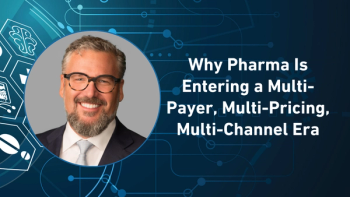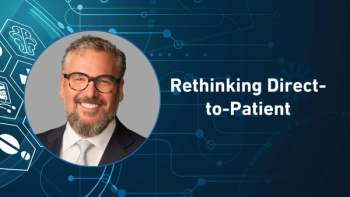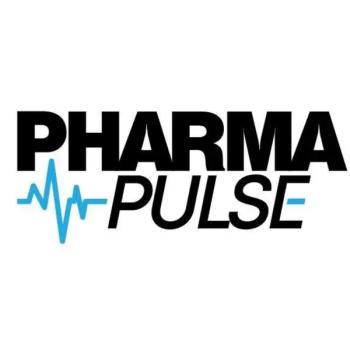
Your Engagement Strategy is Only as Good as Your Data
Leaders from Janssen, Novartis Gene Therapies, Pierre Fabre, and the German cancer app start-up Mika discuss how they are leveraging data in innovative ways to advance their engagement with the scientific community and their overall commercial operations
Data plays an important role well beyond helping pharma companies improve the productivity of their medical and field teams. It’s also a crucial lever for getting the right information to the right health care professionals (HCPs)— so that it can reach the right patients.
To identify the right experts and enable more relevant engagement, field teams need data about the complete healthcare ecosystem. Many companies have amassed a lot of it, but only some have laid a solid foundation to connect all of their data sources and embrace advanced analytics. Only then can real-time insights and customer intelligence become an integral part of medical, sales, and marketing workflows.
I recently connected with leaders from Janssen, Novartis Gene Therapies, Pierre Fabre, and the German cancer app start-up Mika, each of whom are leveraging data in innovative ways to advance their engagement with the scientific community and their overall commercial operations.
Using data to inform engagement
To start with, actionable insights help companies know which experts to prioritize and allow them to react quickly to scientific developments in their therapeutic areas. Mircea Cubillos, Janssen’s vice president for strategy and commercial leader of hematology EMEA, says, “We need to better understand people’s networks and spheres of influence. We want to hear who's saying what in different channels so we can customize our messaging to address real concerns in a timely manner. That's the best way to have meaningful conversations that provide value to our customers.”
Cubillos adds, “We talk a lot about personalized medicine, but we need to address the concept of personalized engagement and how we make the most of each interaction. There's a big ‘why’ behind this: It's quite evident to everyone in the industry that we all need to provide a meaningful experience to our customers. I'm convinced that whoever leverages the vast amounts of data and intelligence at their disposal to inform ongoing engagements will win.”
This is because real-time data, artificial intelligence (AI), and advanced analytics drive more relevant, tailored interactions between a field force and its customers. That’s particularly true for companies operating in the rare disease space or offering novel therapeutic aids. Take Mika, a German start-up that has developed a digital support app for cancer patients and is using data to identify HCPs who are early adopters of technology.
Through data analytics, the team has learned that it needs three to four touch points with these physicians to turn them into a prescriber. Data has also helped the company to better understand channel preferences. “We're learning that multi-touch omnichannel is the right way to reach a broader audience,” says Mika founder Gandolf Finke.
Embedding intelligence into workflows
Companies are infusing data-driven insights into their reps’ daily workflows so they can optimize customer journeys. Valérie Alleger, Janssen’s EMEA director of data and analytics strategy, says “We're not just talking about the volume and type of interactions and which content to use, we're also talking about what triggers the best engagement. From an analytics perspective, that's much more complex. We need to decide what to do first, what to do next, and what is the optimal sequence.”
Alexandre Giraudon, business intelligence and commercial data director at Pierre Fabre agrees. “We are working closely with the business to clearly specify their needs so we can better target the data we are going to use and identify the final deliverable,” he says. “They can identify the action plan they want to implement at the field or marketing level, and then use data from CRM to monitor execution.”
Novartis Gene Therapies has integrated its data sources with its CRM and content development tools—capturing insights from all to constantly measure the progress of its strategy. “With the right data foundations in place, different data sources can be connected and updated in real-time,” says Elodie Privat, sales analytics and operations lead, EMEA at Novartis Gene Therapies. “Then you can really deliver meaningful insights internally and bring an added value when you interact with HCPs.”
As companies search for the highest quality data, they are increasingly mindful of how they deliver it to those who need it. “Many companies are now looking to create an integrated view of the customer for their MSLs and reps, including analytics to guide their work,” Alleger says. “In addition, AI-based segmentation helps enrich traditional market research and allows brand teams to take better, but also quicker actions—moving to real-time adaptation of both marketing and sales activities.”
The next challenge is to make data-driven engagement strategies work at scale. “I think you have to create a test-and-learn approach,” says Giraudon. “If you apply analytics to data, it also brings a very strong added value for your field. They feel that the data they record is being analyzed and shared back in a helpful way to improve their performance and interactions with HCPs.”
Kilian Weiss is the general manager of
Newsletter
Stay ahead in the life sciences industry with Pharmaceutical Commerce, the latest news, trends, and strategies in drug distribution, commercialization, and market access.




